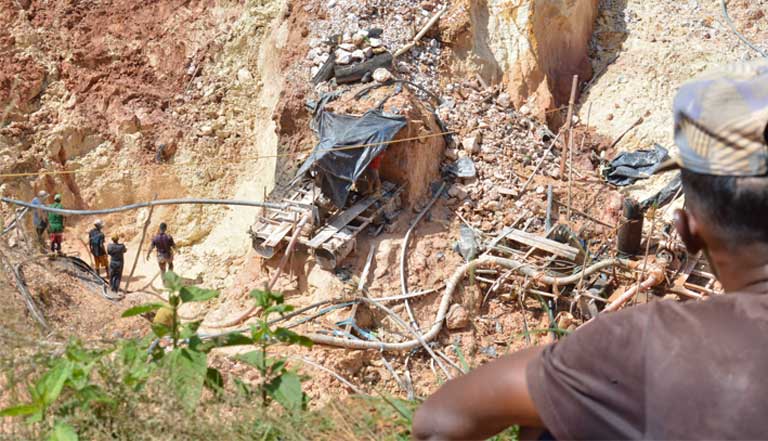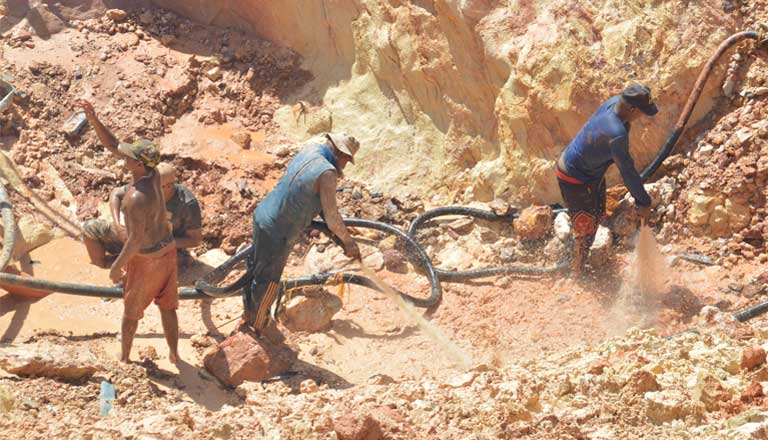Photojournalist Disappears After Covering the Orinoco Mining Arc Ecocide
A special piece about the Orinoco Mining Arc recently won an important journalism award by the Online News Association, but the photojournalist involved in the project has been missing for more than six months.


Photos: Wilmer González retrieved
In the face of pressure and censorship, Venezuelan independent media resist and strive trying to break the barriers imposed by the hegemony. Indeed, many media outlets’ work has been recognized abroad. A recent example is the award given to Guayana newspaper Correo del Caroní and Brazilian outlet InfoAmazonia for their joint special report “Digging into the Mining Arc”.
Sadly, celebration has been kept in the shadows because photojournalist Wilmer González has been missing for more than six months.
Wilmer González has been missing for more than six months.
“…He was last seen in February before going to work at a mine in Piacoa, Delta Amacuro State, Venezuela.
The last telephone call with his family occurred in the first week of March. Since then, they have not heard of him, though Wilmer had always kept in touch with his family, especially his children. The decision to work for some time in the mines was a result of the country’s economic situation and the need to bring money home.”
 By Wilmer González, 2018, retrieved from Mongabay Latam
By Wilmer González, 2018, retrieved from Mongabay Latam
The family reported the disappearance to the Criminal Investigations Police (CICPC), but there have been no breaks in the case. For fear of retaliation, they preferred not to make it public until now. Fellow photojournalist German Dam said the CICPC hasn’t followed the leads given by the family.
Reporter Bram Ebus, who worked with González in “Digging into the Mining Arc”, shared this message about Wilmer on Twitter: “(González) isn’t just a personal friend and an excellent photojournalist for Correo del Caroní; he was indispensable for our project. It wouldn’t have been possible without him.” He dedicated the award given by the Online News Association to him.
The family reported the disappearance to the Criminal Investigations Police (CICPC), but there have been no breaks in the case.
The report has been praised for its innovative approach with their use of information, images and videos, thanks to the efforts of both media outlets involved.
Besides his eight-year-long work with Correo del Caroní, González worked with other media outlets, domestic and foreign. Back in 2014, he and reporter Diogelis Pocaterra were attacked by an irregular armed group while covering a protest in Puerto Ordaz.
In recent years, Correo del Caroní has been on a fierce struggle against the effects of Newsprint-geddon and direct attacks against its leadership. This award is a great incentive for them to continue working. Especially when other local papers are facing the crunch.
But this report also calls attention to what is probably one of the most problematic issues that we’re not paying enough attention to: the Orinoco Mining Arc. Even if the word “ecocide” is used lightly sometimes, the evidence shows that what’s happening there fits that description. And the grave implications of it are not just for Venezuelans alone. Just ask the Guyanese.
We hope that Wilmer González is alive and well, so he can reunite with his family and his friends.
 By Wilmer González, 2018, retrieved from Mongabay Latam
By Wilmer González, 2018, retrieved from Mongabay Latam
Caracas Chronicles is 100% reader-supported.
We’ve been able to hang on for 22 years in one of the craziest media landscapes in the world. We’ve seen different media outlets in Venezuela (and abroad) closing shop, something we’re looking to avoid at all costs. Your collaboration goes a long way in helping us weather the storm.
Donate




